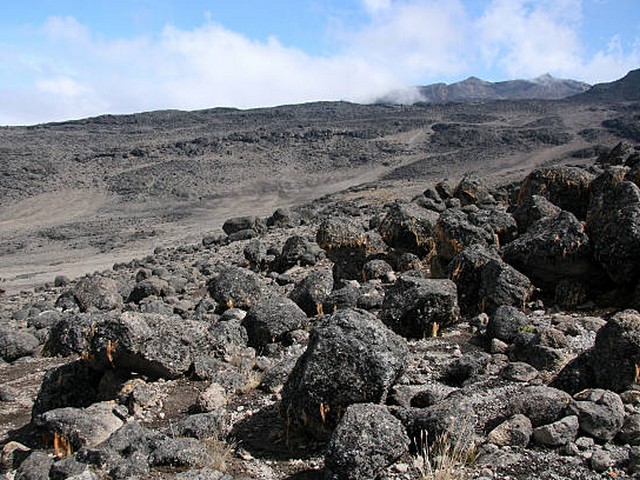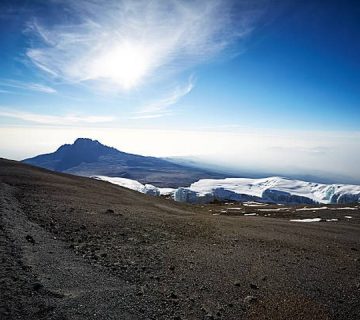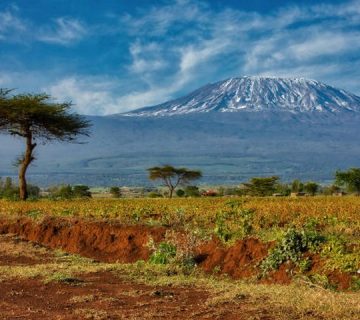Climbing Kilimanjaro: Essential Hydration and Nutrition Tips to Reach the Roof of Africa
Embarking on a trek to Mount Kilimanjaro is not just a journey of the feet; it's a test of endurance, spirit, and preparation. At the Kilimanjaro Centre for Trekking and Ecotourism (KCTE), we understand that the key to a successful summit lies not only in the physical training but also in mastering the art of hydration and nutrition. As you prepare to conquer the highest peak in Africa, it's crucial to discuss how to maintain optimal energy and hydration levels. This blog post will guide you through essential hydration and nutrition strategies to enhance your Kilimanjaro trekking experience.
Understanding the Challenge: Why Hydration and Nutrition Matter on Kilimanjaro
Climbing Mount Kilimanjaro exposes trekkers to extreme altitudes where the air is thin, temperatures fluctuate, and physical exertion is intense. Under these conditions, your body requires more water and a balanced mix of nutrients to function properly. Dehydration or poor nutrition can lead to altitude sickness, reduced stamina, and even failure to reach the summit. Therefore, knowing what to ingest and when can significantly impact your climb.
H2: Hydration: Your Best Ally Against the Mountain
The Importance of Staying Hydrated
Your hydration needs increase at high altitudes. The dry air on Kilimanjaro means moisture evaporates from your skin and lungs faster than it would at sea level, increasing your risk of dehydration. Symptoms of dehydration are often similar to those of altitude sickness and include dizziness, headache, and fatigue.
Tips for Adequate Hydration
- Start Early: Begin hydrating a few days before your trek. This ensures you're starting your adventure with a hydration surplus.
- Consistent Intake: Don't just drink when you're thirsty. Aim to consume about 3-4 liters of water per day. Drink small amounts frequently throughout the day.
- Use Electrolytes: Water alone might not suffice. Supplement your intake with electrolyte solutions or tablets to replenish lost salts and minerals.
- Avoid Certain Substances: Reduce or avoid caffeine and alcohol during your climb as they can dehydrate you.
H2: Nutrition: Fueling Your Ascent
The Role of a Balanced Diet in Trekking
A balanced diet provides the necessary energy and nutrients to sustain prolonged physical activity. On Kilimanjaro, your body will burn calories rapidly due to the strenuous nature of hiking and the cold environment.
What to Eat Before and During Your Trek
- Carbohydrates: They are your primary energy source. Include complex carbs such as whole grains and oats in your meals to release energy slowly.
- Proteins: Essential for muscle repair and recovery. Incorporate lean meats, legumes, and dairy products into your diet.
- Fats: High-energy sources that are beneficial in cold climates. Nuts, seeds, and avocados are excellent choices.
- Snacks: Energy bars, dried fruits, and nuts are great for eating on the go.
- Meal Timing: Have a hearty breakfast, and maintain regular meal times as much as possible to keep your energy levels consistent.
Listening to Your Body: Adjustments Along the Way
Altitude can affect how your body processes food. You may find that your appetite decreases as you ascend. It's important to listen to your body but try to consume enough calories and fluids, even when you're not hungry or thirsty.
SOS: Signs of Trouble and How to Respond
Recognize the signs of dehydration and malnutrition: persistent hunger, unusual tiredness, and prolonged muscle soreness. If you experience these symptoms, increase your fluid and calorie intake. If symptoms persist, seek guidance from your KCTE guide immediately.
Kilimanjaro Trek Hydration and Nutrition FAQs
Q: How much water should I drink on Kilimanjaro?
A: Aim for 3-4 liters per day. Your guide will provide ample opportunities to refill your water bottles with purified water.
Q: What are the best snacks for energy during the trek?
A: Opt for snacks high in proteins and fats like nuts, seeds, and energy bars. Avoid overly sugary snacks that can spike your blood sugar levels.
Q: How can I ensure I'm getting enough nutrients?
A: Focus on balanced meals provided by the KCTE catering team, who are trained to prepare meals optimized for high-altitude trekking.
Final Thoughts and a Call to Adventure
Mastering hydration and nutrition is crucial to a successful Kilimanjaro summit. At Kilimanjaro Centre for Trekking and Ecotourism (KCTE), we are committed to providing you with the expertise and support to tackle these challenges effectively. With our experienced guides and carefully planned itineraries, you are in safe and knowledgeable hands.
Are you ready to take on the adventure of a lifetime? Contact us today to book your Kilimanjaro climbing experience and ensure you're well-prepared to conquer the Roof of Africa. Join the ranks of those who have witnessed the sunrise from Uhuru Peak, fueled by the right hydration and nutrition strategies. Let the journey begin!
Climbing Kilimanjaro is more than a trek; it's a life-changing adventure that begins with the right steps. Let KCTE be part of your story.




